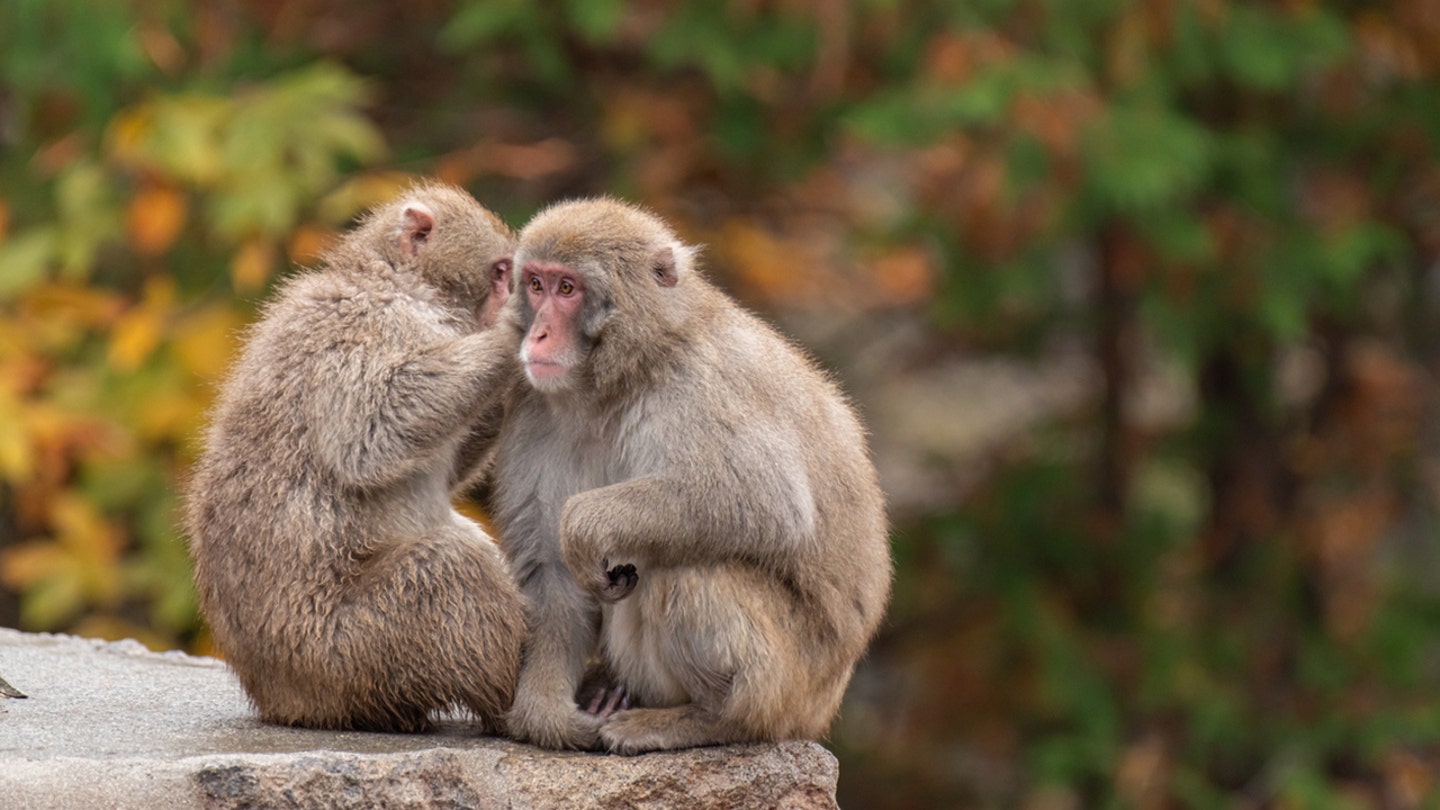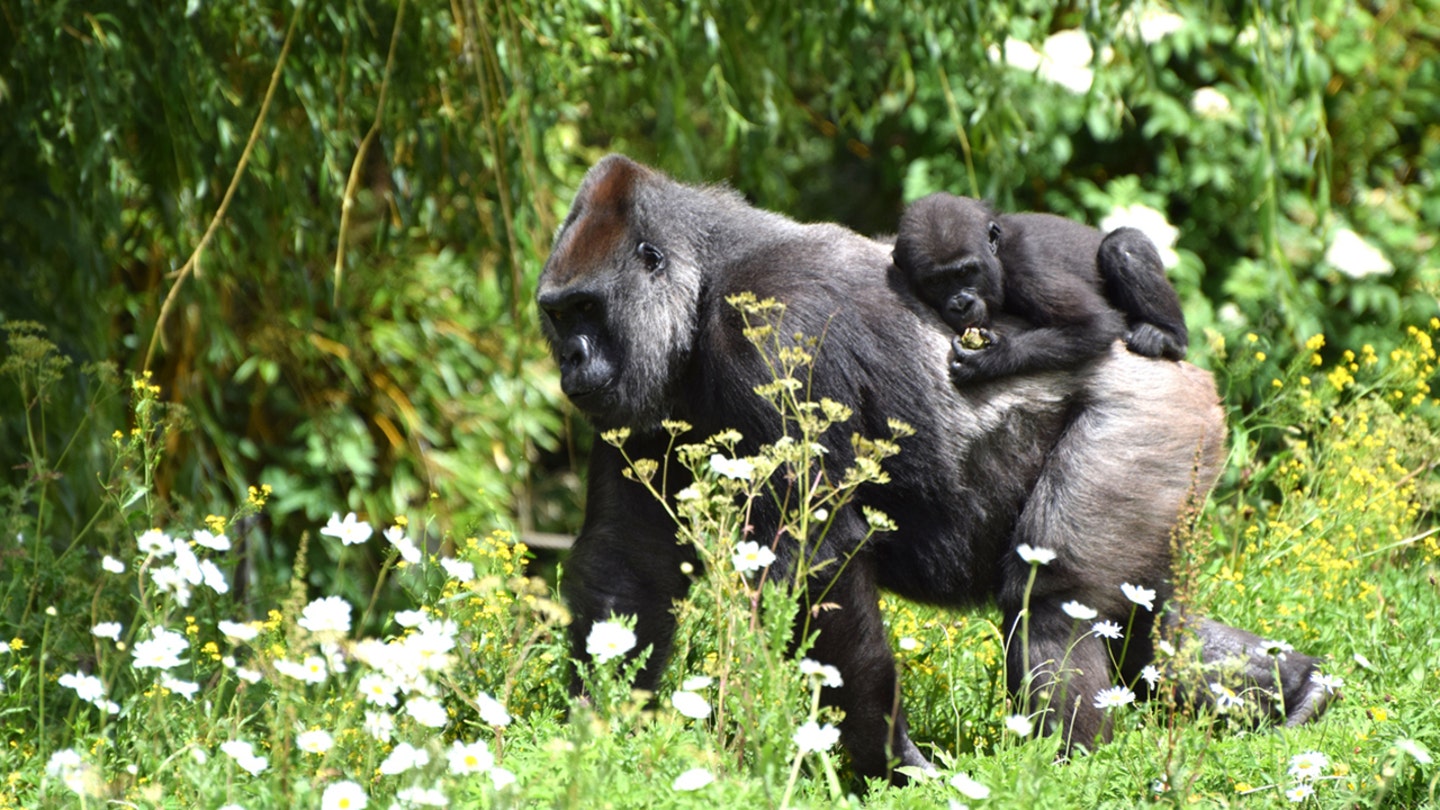In modern dating, the “ick” is a term that’s primarily experienced by women and feared by men.
The term has gone viral on social media in recent years, describing a feeling of disgust toward the actions, appearances and other characteristics of someone’s partner.
Some examples of popular icks include people chewing with their mouths open, wearing flip-flops or tripping over their own feet while walking.
WOMEN REVEAL THEIR ‘ICKS’ FOR MEN AND WHAT IS KILLING THEIR ‘LADY B—RS’ IN VIRAL TREND
The list has narrowed to a more specific set of icks blasted on the internet, including aversions to how men chase after a ping-pong ball, or even use a debit card instead of a credit card on a date.
One woman on TikTok posted a video of her significant other walking around the apartment wearing tiny no-show socks. (TikTok/Screenshot/Amanda)
Primal instinct
National Geographic claims that the “ick” feeling is related to a biological, primal instinct.
In several primate species, including humans, adult females are “more sensitive to grossness than males,” according to a scientific dive by NatGeo.
STUDY LINKS MENTAL HEALTH RISKS TO THIS TOXIN FOR THOSE BORN IN ‘60S OR ’70S
“For instance, female gray mouse lemurs and Japanese macaques are more likely than males to turn up their noses at contaminated food, while female western lowland gorillas and olive baboons tend to avoid fellow animals with skin infections,” the report stated.
This cautiousness then leads to a lower incidence of infectious disease in females, according to scientists.

Female Japanese macaques are “more likely than males to turn up their noses at contaminated food,” experts say. (iStock)
Cecile Sarabian, a cognitive ecologist at the Institute for Advanced Study in Toulouse, France, told NatGeo that there’s a “protective power to the ‘yuck.’”
She suggested that females’ pickiness about what they eat and who they expose themselves to “may be one of the reasons female primates live longer than males.”
“Scientists don’t know why lots of female animals — including humans — are more easily grossed out than males.”
Elizabeth Anne Brown, a National Geographic contributing writer based in Denmark, commented on these findings.
“Scientists don’t know why lots of female animals — including humans — are more easily grossed out than males,” she told Fox News Digital.
GIVING THANKS CAN MAKE YOU HAPPIER AND HEALTHIER, EXPERTS SAY
“But ‘yuck’ acts like an advanced guard for our immune system, limiting our exposure to things that could make us sick, like parasites and bacteria.”
Disgust “plays an important role” in mate selection for primates, Brown said, as females of some species “will absolutely shut down prospective suitors [that have] symptoms of STDs.”

“Female gorillas take ‘the ick’ so seriously they basically skip town and start a new life,” a NatGeo contributing writer said. (iStock)
“If the resident male in a troop of western lowland gorillas develops pale blotches on his face — a symptom of infection with treponema, the same contagious bacteria that causes syphilis in humans — some females will fully abandon the troop and search for an uninfected male,” she said.
“These female gorillas take ‘the ick’ so seriously that they basically skip town and start a new life.”
WHY ARE MEN OBSESSED WITH THE ROMAN EMPIRE? HISTORY EXPERT SAYS IT’S A ‘VERY AMERICAN THING’
In analyzing Japanese macaques, Sarabian noted how the females would wipe off any leaf litter from their acorns before eating them, while the males were “more likely to gobble the food down having barely looked at it.”
“Unfortunately, the only dating advice we can take from our primate cousins is to be cautious about STDs — always a good policy.”

Those who “get the ick” easily should try shifting their perception of the situation, one expert suggested. (iStock)
The psychology of feeling icky
Dr. Kyra Bobinet, a California behavioral neuroscientist and author of “Unstoppable Brain,” broke down what happens in the brain when someone feels disgusted.
“Anything we are averse to, that we want to avoid, or that we shrink back from — including the ick — is controlled by this area of the brain [called the habenula],” she told Fox News Digital.
The habenula is a central part of the brain that’s involved in various important functions, including motivation and decision-making, according to the expert.

The habenula is a central part of the brain that’s involved in various important functions, including motivation and decision-making. (iStock)
This area, when activated, “kills our motivation to try,” said Bobinet.
“This area of your brain is scouting for anything that’s not going to work out for you,” she said. “It has a negativity bias.”
The expert encourages those who “get the ick” to try shifting their perception of the situation.
THE TAYLOR SWIFT OBSESSION: PSYCHOLOGISTS WEIGHS IN ON WHY FANS WORSHIP CELEBRITIES
Bobinet also agreed that women are biologically more prone to having self-awareness of “icky” feelings, as they are “made to make babies.”
“We have to be very sensitive to our environment because we have to protect the baby from fumes, from danger, from all these things,” she detailed.

Women are biologically more prone to having self-awareness of “icky” feelings, as they are “made to make babies,” an expert noted. (iStock)
The role of social media
The ick gets “taken to an extreme” on social media, according to Bobinet — “and you can get really narrowed down and too picky.”
This can interfere with dating, the expert suggested, as criteria for a partner become “unrealistic.”
CLICK HERE TO SIGN UP FOR OUR HEALTH NEWSLETTER
M. David Rudd, PhD, distinguished professor of psychology at The University of Memphis, said there are “undoubtedly evolutionary reasons” for disgust “across genders.”
“But it’s important to always factor into today’s phenomenon the issue of social learning and related reinforcement driven by the broad and unparalleled reach of social media,” he told Fox News Digital.

Modern dating poses struggles for both genders, experts said. (iStock)
Rudd noted that social media creators are also motivated by attention and financial gain, which can move along trends more than “any meaningful evolutionary purpose.”
For more Health articles, visit foxnews.com/health
“Those most vulnerable to mimicking social media behavior are often those most in need of the central motivators to begin with — attention being the central one, quickly followed by money,” he said.
CLICK HERE TO GET THE FOX NEWS APP
“Extrapolating and interpreting evolutionary benefits in this context is likely to lead to considerably high error rates.”
